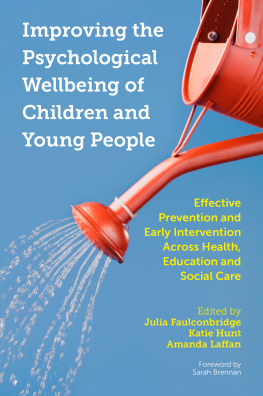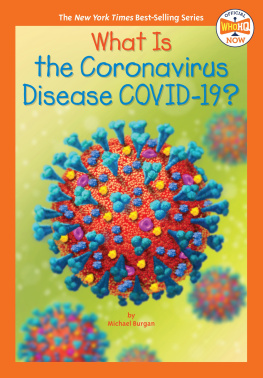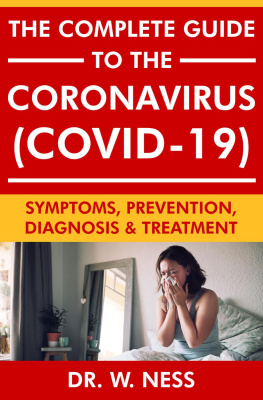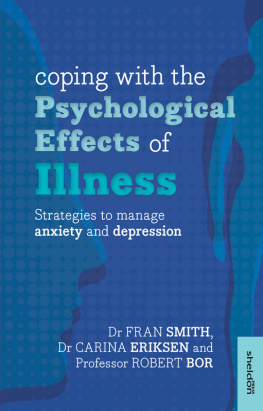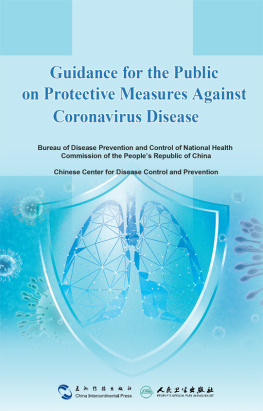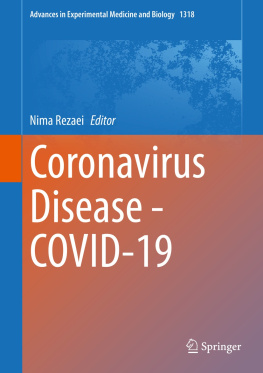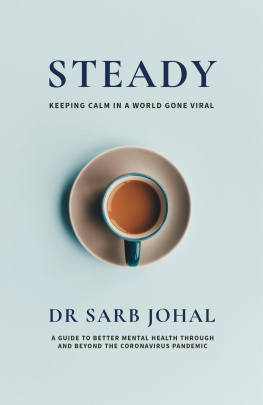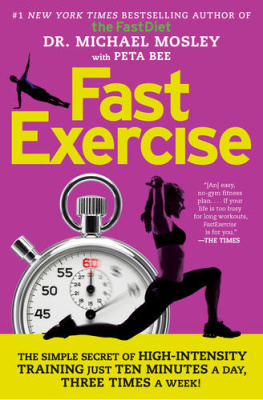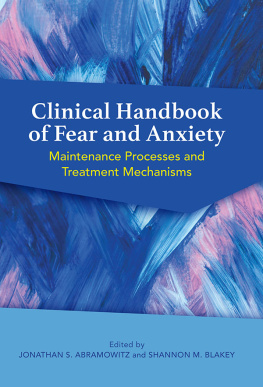Contents

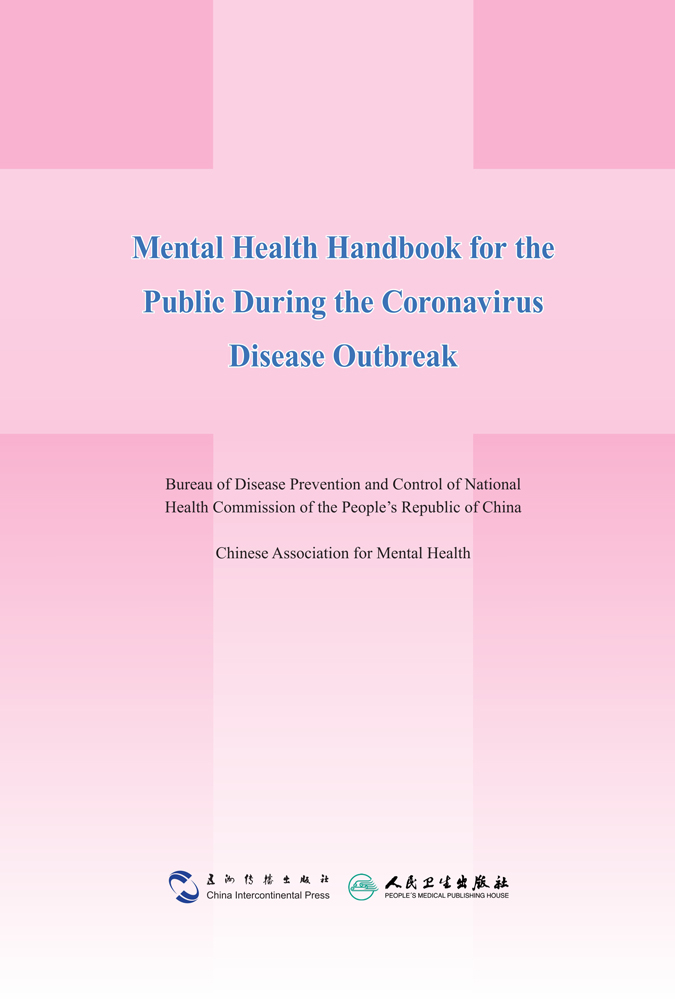
Mental Health Handbook for the Public During the Coronavirus Disease Outbreak Editorial Board
Editor in chief: Ma Xin
Deputy editors in chief: Xie Bin, Wang Gang, Zhao Xudong
Editors: (in alphabetic order of last name)
| Chen Yanyan | Beijing Normal University |
| Fang Xin | Peking University |
| Guo Yong | The Sixth Medical Center of PLA General Hospital |
| Jiang Changqing | Beijing Anding Hospital, Capital Medical University |
| Li Qiang | Nankai University |
| Li Yan | Tsinghua University |
| Li Ying | Beijing Anding Hospital, Capital Medical University |
| Li Zhan | jiangBeijing Anding Hospital, Capital Medical University |
| Liu Jing | Beijing Anding Hospital, Capital Medical University |
| Liu Jing | Peking University Sixth Hospital |
| Luo Jia | Beijing Anding Hospital, Capital Medical University |
| Ma Xin | Beijing Anding Hospital, Capital Medical University |
| Ma Yun | Beijing Anding Hospital, Capital Medical University |
| Ma Jianqing | Zhejiang University |
| Meng Fanqiang | Beijing Anding Hospital, Capital Medical University |
| Meng Xianghan | Nankai University |
| Pan Weigang | Beijing Anding Hospital, Capital Medical University |
| Qiao Zhihong | Beijing Normal University |
| Shao Xiao | Beijing Anding Hospital, Capital Medical University |
| Shi Jie | PLA Rocket Force Characteristic Medical Center |
| Song Hongyan | Beijing Anding Hospital, Capital Medical University |
| Tang Denghua | Peking University Sixth Hospital |
| Tang Lirong | Beijing Anding Hospital, Capital Medical University |
| Tang Yongyi | Chinese Association for Mental Health |
| Wang Gang | Beijing Anding Hospital, Capital Medical University |
| Wang Pengchong | Beijing Anding Hospital, Capital Medical University |
| Xi Yingjun | Beijing Anding Hospital, Capital Medical University |
| Xie Bin | Mental Health Center, Shanghai Jiaotong University School of Medicine |
| Xiong Kewei | Beijing Normal University |
| Yin Jinxiu | Beijing Normal University |
| Yu Hanxuan | Beijing Normal University |
| Zhang Ying | Beijing Normal University |
| Zhang Xinyu | Beijing Anding Hospital, Capital Medical University |
| Zhao Xudong | Tongji University |
| Zhou Qiuju | Chinese Association for Mental Health |
| Zhu Zhuohong | Institute of Psychology, Chinese Academy of Sciences |
Foreword
Psychological intervention has always been part of our efforts to save lives.
At present, the coronavirus disease (COVID-19) is spreading fast across the world with multiple epicenters. In the face of this common challenge for mankind, all countries should watch out for and help one another. As a responsible big country, China actively supports and participates in international cooperation to combat the epidemic, makes its contribution to regional and international public health security, and promotes the building of a community with a shared future for mankind. In addition to offering advice on protection against the virus and treatment of the disease, China would also like to share its experience in psychological intervention.
When the outbreak evolves to a level that it threatens people's lives, fear, anxiety and panic will grow and spread, and the psychological defense of many people may be damaged, adding to the harm caused by the epidemic. This handbook aims to help the public reduce mental stress, improve their psychological defense, and build confidence in defeating the epidemic.
Chapter One Mental Health Advice for COVID-19 Patients
The sudden outbreak of COVID-19, a new infectious disease, is a highly stressful situation for us all. It takes time for us to adapt to any threat and challenge that occurs because severe internal and/or external disruptions tend to cause physical and mental disturbances. For example, the COVID-19 outbreak may suddenly turn one from an ordinary healthy person to an infected patient, imposing on him/her not only physical sufferings, but also different levels of psychological stress.
To recover from a disease, patients not only need to depend on medical care delivered by healthcare professionals, but also have to rely on themselves to face the disease with a positive attitude. For the medical staff, during the treatment process, it is important not only to pay attention to patients' physical needs, but also to understand their psychological demands, as well as the mental problems that may arise. This is how they can help their patients carry through the process of the disease no matter which stage they are in: early days of treatment in isolation; later stage of treatment in isolation; respiratory distress, extreme anxiety and difficulty to express themselves as the disease progresses; or home isolation for those who have only mild symptoms. When patients adapt themselves well to the situation, they will probably be more cooperative for treatment and recover sooner and better.

Section I Psychology of Confirmed Patients
Becoming a confirmed patient with COVID-19 in itself is a source of huge stress. In addition, getting infected will also disrupt one's routines of work and life and may cause various kinds of additional stress. At different stages of the disease and its treatment, patients may have different mental reactions.
I. At the beginning of treatment in isolation
Forced into isolation all of a sudden, with only fully-equipped medical staff around in totally unfamiliar surroundings, not knowing what will happen to them, patients who have just been confirmed to have COVID-19 will undoubtedly feel overwhelmed and at loss early after being diagnosed.
Some patients may feel shocked, having no idea what to do. They may even feel numb, have no expression on their faces, become slow in reaction, and find it hard to concentrate.
Some patients may deny the fact that they are infected and insist that the doctors must be wrong.
Some patients may feel angry and complain about bad luck. "Why me?" They can become easily irritable over trivial matters and even vent on medical staff and family members. They tend to refuse to cooperate with treatment, and may display impulsive destructive actions.
Some patients show obvious anxiety, including fears of the virus, concerns for their loved ones, worries about treatment outcome, and fear of death.
Some patients may sink into sadness and depression. They tend to be pessimistic, feel hopeless, and may stay awake all night long with negative thoughts lingering in their minds.



